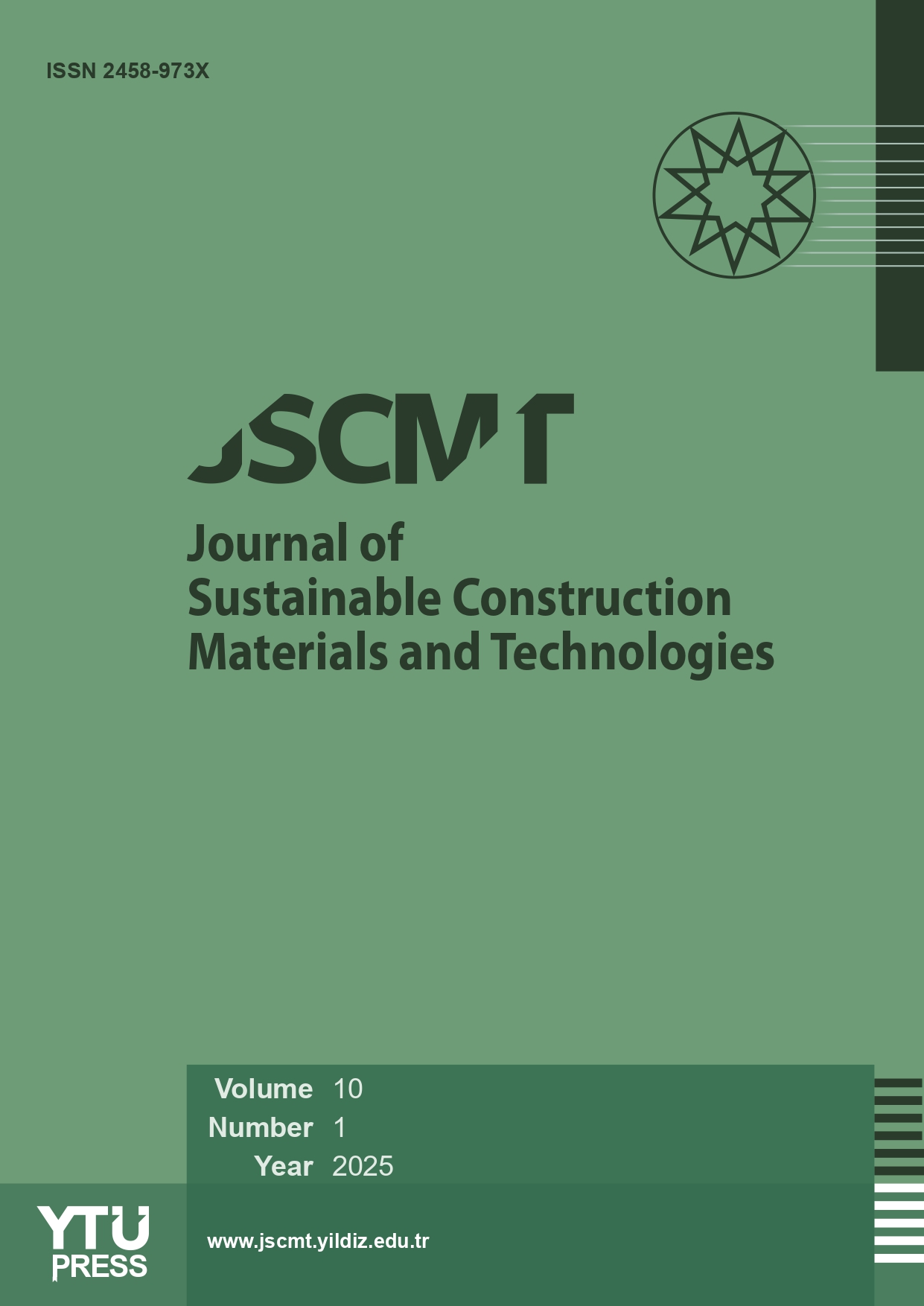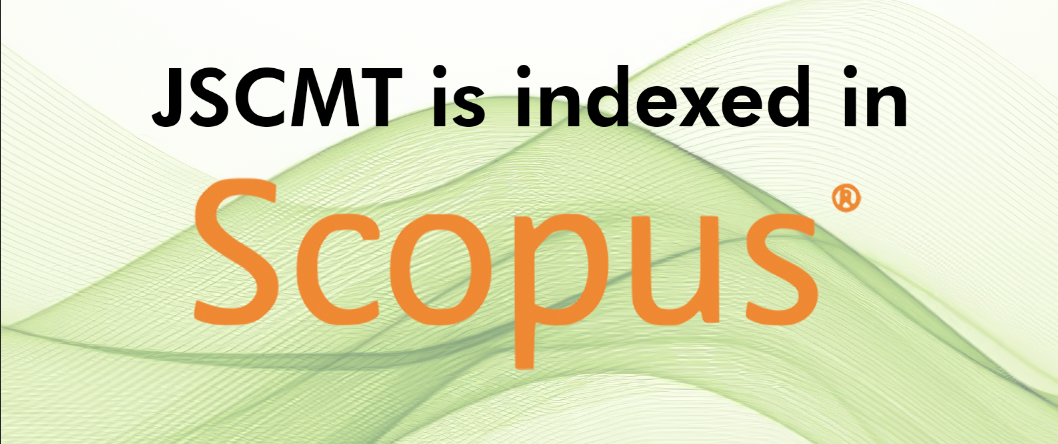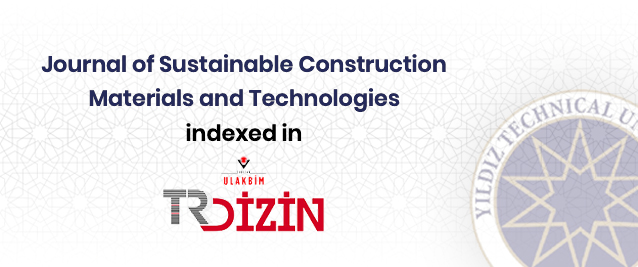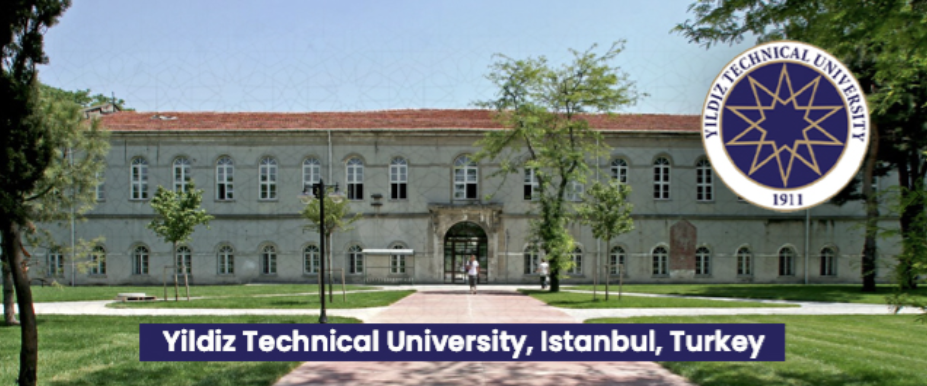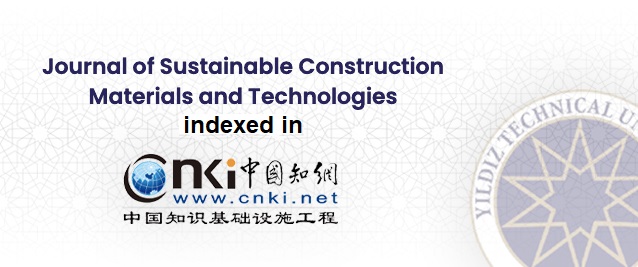2Department of Architecture, İstanbul Technical University, İstanbul, Türkiye
Abstract
This study examined the influence of long-term curing duration on the properties of geopolymers produced through the geopolymerization reaction between Datça Pozzolan and sodium silicate and potassium hydroxide solutions. The specimens were heat cured at 90 °C, 95±5% RH for 24 h initially and then kept under ambient conditions until the tests were conducted at 7, 90, and 365 days. The results showed that applied initial heat curing was appropriate to achieve high early and long-term strength. Geopolymer mortars with 12.5 M and 2.5 activator ratios had the lowest porosity (20.90%) and the highest ultrasound pulse velocity (UPV) (3.10 km/s), compressive strength (10.57 MPa), and flexural strength (5.20 MPa) after seven days. While the porosity of the identical specimens decreased by up to 15.77%, the UPV, compressive strength and flexural strength increased by 3.37 km/s, 15.32 MPa, and 6.06 MPa, respectively, after 365 days. The physical and mechanical improvement in the first 90 days exceeded 90–365 days. A higher rate of improvement was obtained when the activator ratio was low, i.e., the improvement decreased inversely as the sodium silicate content of the mortar increased. An increasing trend was observed in the plot of compressive strength as a function of UPV, and the slope values presented a strongly related linear function relation.


